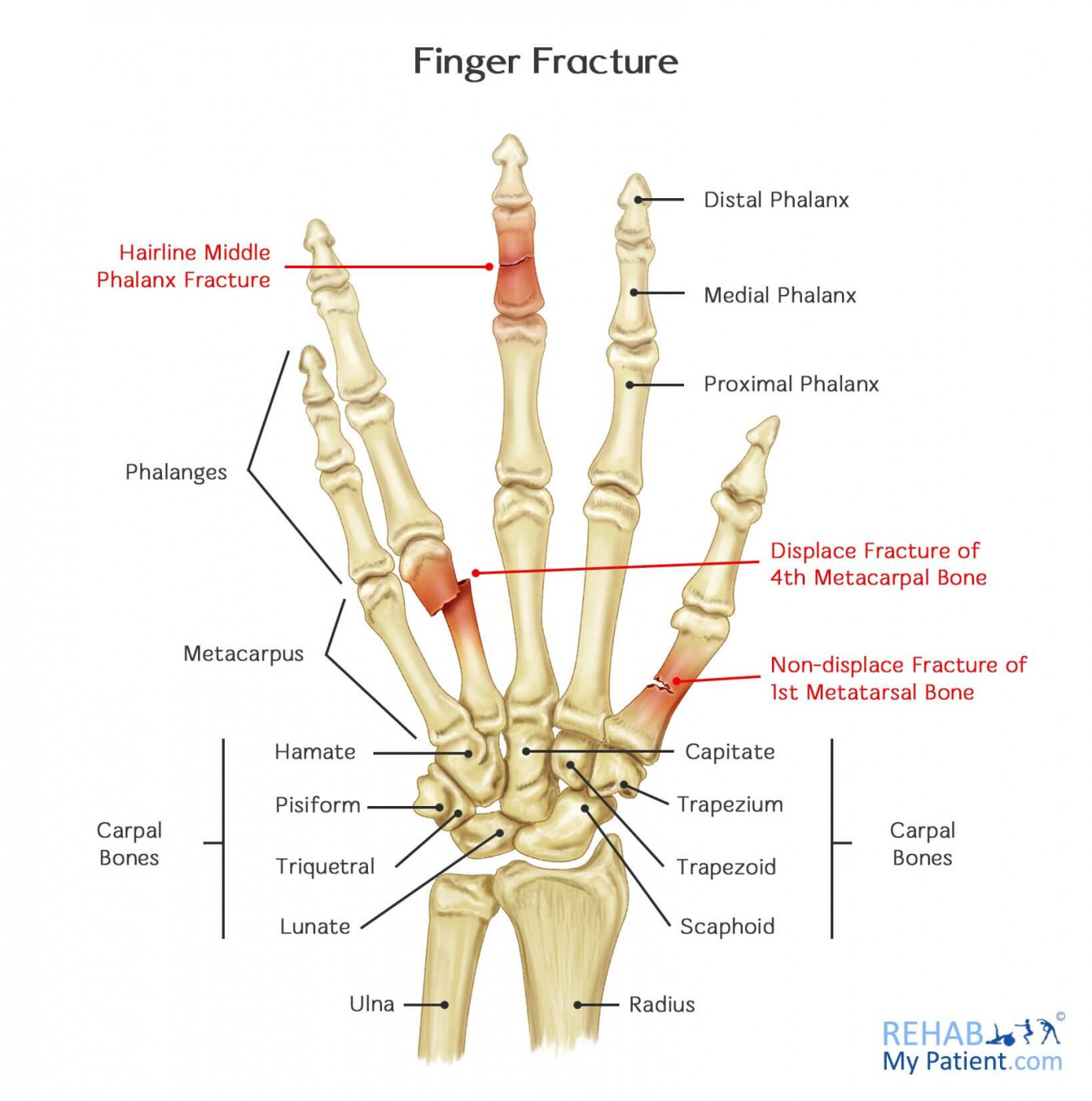
Although a fractured finger is a fairly minor injury, without the proper treatment, fractured fingers can cause a number of complications. The bones in a normal hand are lined up with precision. They allow you to perform a number of specialized functions, such as manipulating small objects in your palm or grasping a pen. Once a finger bone is fractured, it can gain a position out of alignment. Without proper treatment, the fractured finger might remain painful and stiff.
Most of the time, a fractured finger is caused from an injury to the hand. You can fracture your finger from slamming the fingers into the door or putting your hands out to save you from falling. If a ball jams your finger during a ball game, you can also fracture your finger. Being careless when working with drills, power saws and other tools could cause your finger to be fractured.
Finger Fracture Anatomy
Within the hand, there are 27 bones. Eight bones are within the carpals of your wrist. The palm of the hand contains five bones known as the metacarpals. The 14 bones within the fingers are known as the phalanges. Fractures to the bones leading to your little fingers account for about a third of the fractures for adult hands.

How to Treat a Finger Fracture:
- Nonsurgical Treatment
The doctor may put the broken bone back into position, often without having to worry about surgery. A cast or splint will hold the finger straight and prevent any additional injuries while it heals. There are times when a doctor might end up splinting the finger next to the one that is fractured to deliver additional support. You will be advised on how to wear the splint. Most of the time, a splint on the finger that is fractured will remain in place for about three to four weeks. You might have to get additional x-rays throughout the healing process so the doctor can monitor the progress of the finger in the healing phase.
- Surgical Treatment
Depending on the severity and the type of fracture you have, you might need to undergo surgery to have screws, pins or wire put into place to hold the fractured bones in their proper position.
Tips:
- As soon as you are cleared to move your finger, you will want to begin using the hand again to prevent stiffness.
- Perform simple rehabilitation exercises daily to help reduce any swelling and stiffness in the finger. A therapist can help assist you in performing these exercises.
- It is important that the fractured bone is detected, as well as how the bone was broken, to make sure it gets corrected properly.
- Bones can break straight across the bone, into multiple pieces, shatter entirely or break in a spiral.
- Examining the finger can help determine the proper way to heal the break and get you back on the path to recovery quickly and efficiently.
Sign Up
Sign up for your free trial now!
Get started with Rehab My Patient today and revolutionize your exercise prescription process for effective rehabilitation.
Start Your 14-Day Free Trial